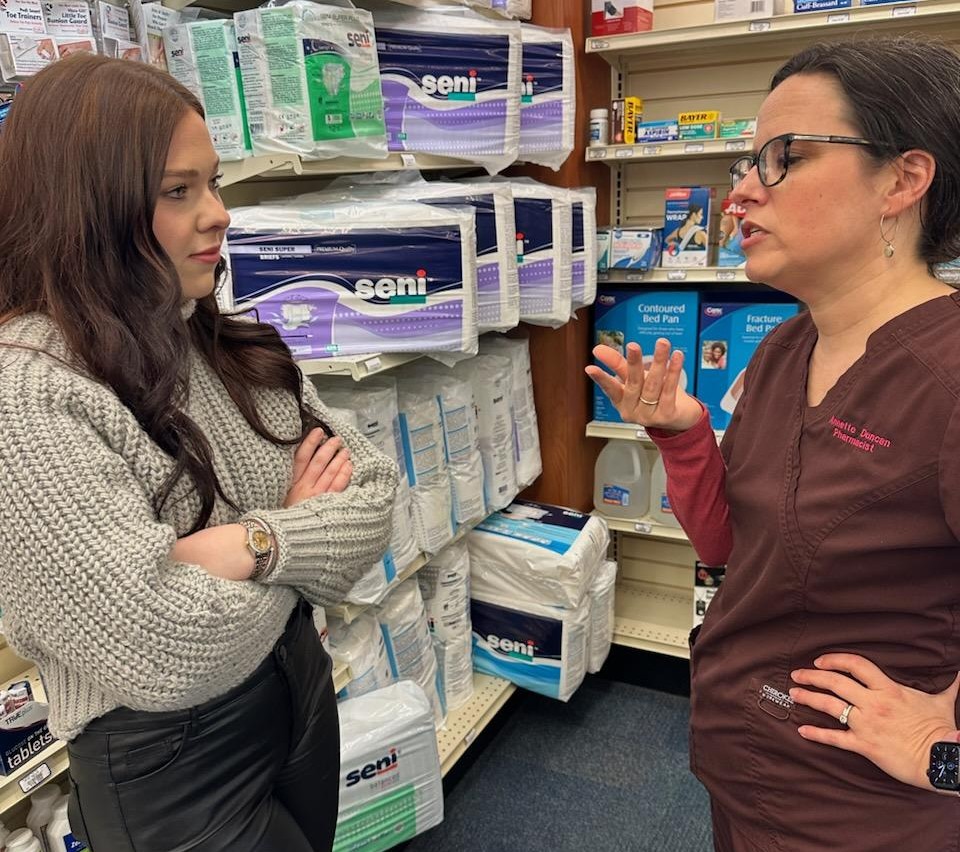When depression is hot, the 100% vaccine, a twist on drug-pricing suits, and more
08 Feb 2024
Posted by Andrew Kantor
Reminder: Paxlovid is free for patients
People are being overcharged for Paxlovid, and HHS wants pharmacists to help it stop. Sure, the list price of Paxlovid is $1,400, but no one should be paying that — Pfizer has co-pay assistance programs. The trouble is that (at least anecdotally) some pharmacy staff aren’t telling patients about that option.
Health and Human Services Secretary Xavier Becerra “made it clear that no patient should be charged hundreds of dollars for Paxlovid at the pharmacy counter,” according to a readout of this week’s meeting with leaders from CVS, Walgreens, Walmart, Rite Aid and Kroger.
The Biden administration has an agreement with Pfizer that no one should be paying at all for Paxlovid. “Medicare and Medicaid enrollees can receive Paxlovid for free through 2024, and uninsured individuals can receive Paxlovid for free through 2028.”
There’s likely nothing sinister going on here; staff may simply be unaware of the options, and HHS wants to make sure that changes.
Eli Lilly: Mounjaro And Zepbound reduce blood pressure, too
First they were for diabetes, then for weight loss. Now at least two of the new GLP-1 drugs have yet another effect: According to Eli Lilly, they can also reduce blood pressure.
It’s tirzepatide specifically that the company says cuts BP, and it’s a Goldilocks dosage:
Participants taking 10 milligram doses of tirzepatide had the greatest systolic blood pressure reductions (10.6 points), followed by those on 15 milligram doses (8.0 points) and participants on 5 milligram doses (7.4 points).
The big caveat: “[T]he researchers aren’t sure if the drop in blood pressure was only due to tirzepatide, or if weight loss and diet change had an effect, as well.” And of course there’s the obvious connection to weight loss.
People with depression are hot
There’s a link between body temperature and depression. It seems (found UC San Francisco psychiatric researchers) that “with each increasing level of depression symptom severity, participants had higher body temperatures.”
They don’t know whether depression somehow causes temps to rise, or if a rise in temperature is a factor in depression. What they do think is that there might be a benefit to cooling the bodies of people suffering from depression — by heating them up.
A small body of existing, causal studies has found that using hot tubs or saunas can reduce depression, possibly by triggering the body to self-cool, for example, through sweating.
But you know the mantra: More research is needed.
AIP out and about
AIP folks were out in Griffin on the latest leg of their “DIR Hangover Tour” — VP Jonathan Marquess and Member Service Rep Catherine Daniel headed to Wynn’s Pharmacy where they met with co-owner and AIP board member Annette Duncan, PharmD, and talked about the solutions and programs AIP offers independent pharmacies.

Co-owners Brett and Annette Duncan; MSR Catherine Daniel; Jasper Eubanks, PharmD; and AIP VP Jonathan Marquess

Catherine and Annette talk about indy pharmacy issues
HPV vax: 100% success
This isn’t something you hear often: The HPV vaccine had a 100% success rate. That was in a study of Scottish women, and not a small one, either. It’s based on women who received the vaccine when they were 12 to 13 years old, starting in 2008. The researchers looked at cancer data in 2020, so that’s 12 years cancer free.
To be extra-super clear:
“[T]here have been no cervical cancer cases to date in fully vaccinated women who were given their first dose at age 12-13 years.”
Wow.
Is this irony? It might be irony
A Johnson & Johnson employee is suing the company saying it “didn’t make enough effort to get its workers a good deal for prescription drugs,” meaning employees ended up overpaying to the tune of millions of dollars.
J&J essentially self-insures rather than paying an insurance company to manage health benefits, which means it falls under the Employee Retirement Income Security Act, aka ERISA, which means it has “a fiduciary duty to prudently manage the funds.”
The lawsuit alleged J&J violated the company’s fiduciary duty under ERISA. J&J’s mismanagement of the drug benefits resulted in “higher payments for prescription drugs, higher premiums, higher deductibles, higher coinsurance, higher copays, and lower wages or limited wage growth,” the lawsuit said.
The fake-research problem
As a publication that relies on scientific papers a lot, this is scary stuff. Fake scientific papers — many from China where they take “publish or perish” to an extreme — are flooding academic journals “as increasing numbers of young scientists try to boost their careers by claiming false research experience.”
You might think the responsibility to verify work falls on journal editors and reviewers, but they’re only part of the problem. Even honest researchers can inadvertently cite falsified work in their own reviews, meaning the problem spreads. Worse, the result of a fake study can make it into the mainstream. Ivermectin is a great example:
Early laboratory studies indicated it could be used to treat Covid-19 and it was hailed as a miracle drug. However, it was later found these studies showed clear evidence of fraud, and medical authorities have refused to back it as a treatment for Covid.
Oh, and while it’s easy to blame the problem on Chinese “paper mills,” it’s bigger than that. Check out “The Harvard Professor and the Bloggers” to learn how pervasive fake research is.
Elsewhere: Brits’ new vending machines
To get more people to test for sexually transmitted infections, the Brits have experimented with vending machines that offered STI tests. They installed 11 of the machines in two medium-sized cities* and let them do their dispensing thing for a year.
These machines dispensed rapid HIV tests and self-sampling kits for other STIs, and the results were quite promising. According to the study, the vending machines were found to be effective and acceptable, especially for individuals who rarely or never get tested.
By “effective” they mean the machines dispensed 2,536 kits, and users seemed satisfied: “An impressive 92% of respondents found the machines user-friendly, and a whopping 97% were willing to recommend the service to others,” (We assume that means “Honey, why don’t you use that machine over there before we get coffee tea?”)
* Bristol in the southwest and Brighton and Hove on the south shore, since you asked


